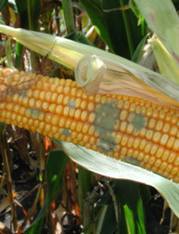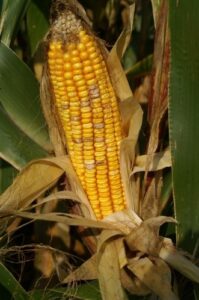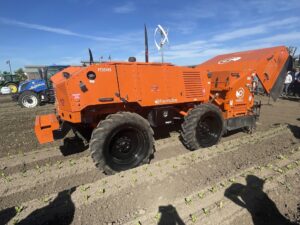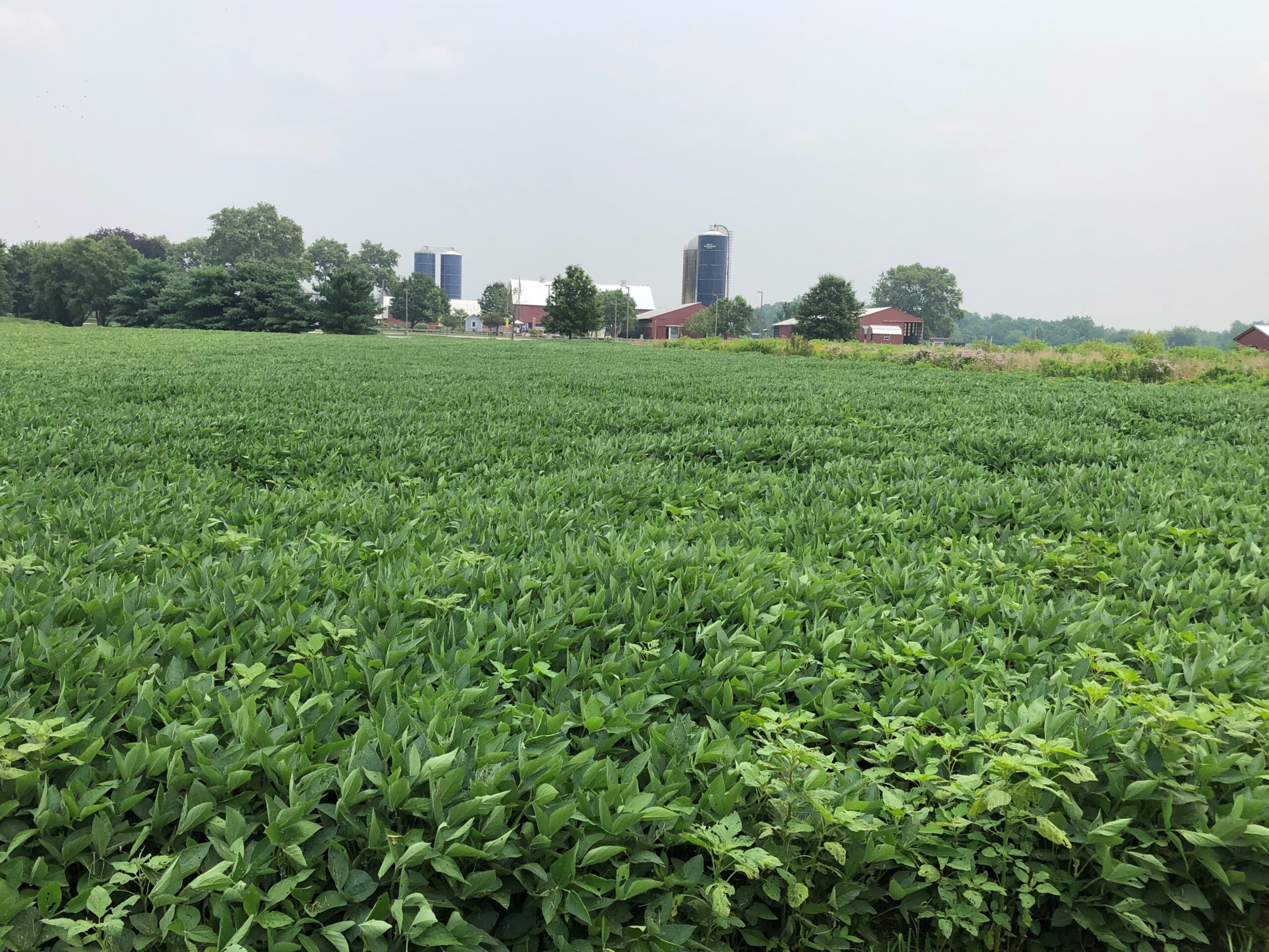The national oceanic and atmospheric agency at Colorado University has released their forecasting for the next two months of the Hurricane and Tropical Storm Season. The strong La Nina is persisting into a third year coupled with decreasing water temperatures returning closer to normal for this time of year are reportedly similar to 1999, 2000, 2011 and 2021 conditions.
Field corn: The stalk stability of droughty corn is much less tolerant to high winds than non-droughty corn. Given the drought conditions, corn producers may have the ability to harvest corn earlier than normal due to rapid dry down on the cob. Current soil moisture conditions are very suitable for fitting fields for winter small grain establishment.
 Aspergillus mold species often show up after drought conditions, posing a significant risk of aflatoxins in the corn crop if present. Aspergillus molds are carcinogenic to people and cause losses in livestock and poultry. Combine operators and elevator operators should take precautions against inhaling fungal spores. Signs of Aspergillus ear rot include evidence of powdery olive-green mold on the ear tip or on kernels in the ear.
Aspergillus mold species often show up after drought conditions, posing a significant risk of aflatoxins in the corn crop if present. Aspergillus molds are carcinogenic to people and cause losses in livestock and poultry. Combine operators and elevator operators should take precautions against inhaling fungal spores. Signs of Aspergillus ear rot include evidence of powdery olive-green mold on the ear tip or on kernels in the ear.

Fusarium ear rots are also probable in fields that had significant high humidity and high temperatures as grains are developing to black layer. Fusarium molds show up as white to pink cotton-like growths mold scattered throughout the ear. A starburst like pattern may occur on infected kernels that may also be brown in color.
*Inhaling poison ivy volitile oils and ivyleaf morning glory and jimson weed dust as they go through the combine along field edges should also be avoided.
For additional images see https://cropprotectionnetwork.org/encyclopedia/aspergillus-ear-rot-of-corn
Hurricane Season: Hurricane forecasters have stated that this La Nina and nearer to average water temperatures are similar to 1999, 2000, 2011 and last year. Given that in 1999, 11.41 inches of rain fell in Salem County; and in 2000, 5.76 inches fell in Salem County; and in 2011, 6.19 inches fell in Salem County in the month of September, producers who can harvest early may want to consider higher moisture harvest if standability is an issue. Hurricane season peaks from mid-August to mid-October with the season ending on Nov. 30.
Soybeans: Soybean fields should be walked for signs of stem snap in areas with high levels of soybean stem borer activity in 2020 and where July herbicide applications visibly stressed plants during the height of the drought this season. Due to in season stresses, bean maturity in the pods may be farther along in some fields than leaves indicate. If 90% of the beans are tan, test moisture levels frequently.
Salem County producers can pick up mycotoxin plant analysis bags at the extension office. Current pricing from regional laboratories are as follows:
1. NJ Department of Agriculture website submission form: (click link)
| Mycotoxin test. Please call the laboratory to check on current availability and pricing |
2. Dairy One Mycotoxin Testing: (click link)
- Mycotoxin Panel $105: Aflatoxin B1, B2, G1, G2, Vomitoxin, Zearalenone, T2, 3-acetyl DON, 15-acetyl DON
- Ochratoxin A $77
- Fumonisin B1, B2, B3 $77
- Full Panel $210
3. Dairyland Laboratories Individual Toxins: (click link)
- Aflatoxin $55.00
- Vomitoxin (DON) $55.00
- Zearalenone $55.00
- T-2 /HT2 $55.00
- Fumonisin $55.00
- Ochratoxin $55.00
Check out the historical storm map maker image below at https://spacecoastdaily.com/2019/08/noaa-historical-hurricane-tracks-explore-more-than-150-years-of-historical-hurricane-landfalls/


 Weed management in vegetables can be difficult due to a shrinking labor pool, which is becoming more costly to source, and a lack of effective herbicides. Research and extension efforts must focus on integrating novel weed technology into current crop production systems. Autonomous and semi-autonomous robotic weed control technology has been implemented by some vegetable growers, mainly in the Western US, but is not universally available to or adapted by many producers. This survey is designed to new tools of interest (e.g. precision sprayers or cultivators, electrical weeders, drones, etc.) for managing weeds in cole crop and leafy green systems as well as the environmental, physical and economic barriers to adoption. The results of this survey will benefit vegetable growers by enabling the research team to develop relevant and realistic research efforts informed by the needs of and constraints faced by our local stakeholders. Specifically, we will use survey data to develop a multi-regional USDA grant proposal to bring grower-specified technology to each our states for evaluation and demonstration under a variety of commercial conditions and provide growers with an economic assessment of their performance relative to current best management practices.
Weed management in vegetables can be difficult due to a shrinking labor pool, which is becoming more costly to source, and a lack of effective herbicides. Research and extension efforts must focus on integrating novel weed technology into current crop production systems. Autonomous and semi-autonomous robotic weed control technology has been implemented by some vegetable growers, mainly in the Western US, but is not universally available to or adapted by many producers. This survey is designed to new tools of interest (e.g. precision sprayers or cultivators, electrical weeders, drones, etc.) for managing weeds in cole crop and leafy green systems as well as the environmental, physical and economic barriers to adoption. The results of this survey will benefit vegetable growers by enabling the research team to develop relevant and realistic research efforts informed by the needs of and constraints faced by our local stakeholders. Specifically, we will use survey data to develop a multi-regional USDA grant proposal to bring grower-specified technology to each our states for evaluation and demonstration under a variety of commercial conditions and provide growers with an economic assessment of their performance relative to current best management practices.

